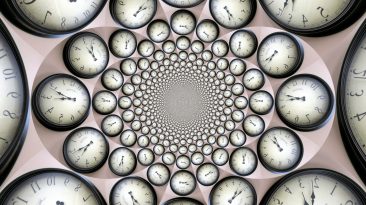Every year, around 140 million babies are born worldwide. And if we continue at this pace, 50 years from now the global population will reach 10.5 billion people. The world might get a bit crowded. So let’s ban all babies for the next 50 years. What would life be like if we suddenly stopped procreating? When would our global population decrease dramatically? And what would happen when the baby ban was lifted?
As crazy as it may sound, fertility rates worldwide are already decreasing. More and more people decide to be childfree. If all humans suddenly stopped having babies forever, our species would be extinct within a hundred years. But what if we just paused all new births for half that time? Would we still be able to survive as a species?
Putting a stop to procreation would surely change life as we know it. The majority of people still want to have babies. If you were one of them, for you, this baby ban might cause emotional pain. The tension between those who want and those who don’t want to have children could escalate and lead to a huge conflict.
There would be a risk that with nothing to represent the future of our species, everyone would start to do whatever they want. We wouldn’t need to face the people who will inherit the planet, so why not let ourselves loose? There would also be huge economic consequences. Just think about how many people are in charge of keeping children safe, fed and educated.
If the last babies for 50 years were born in 2022, there would still be a need for all these workers for about 15 years. After that, everything that has to do with children would no longer be necessary. Entire industries would shut down. Millions of jobs would be lost. But not all would be negative in a world without procreation.
No kids would also mean you could save more money. And if everyone did that, the world could have a better welfare system. If you didn’t have to pay for your kid’s clothes, food and college, you’d have more income for yourself. You might even see a boost in equality. If women no longer had the societal pressure of caring for babies, they could invest more time in their own lives and careers.
The environment would hugely benefit from this too. That’s because the demands for water and food would continue to decrease. If no babies were born for 50 years, the population of planet Earth would drop to around five billion people. This is about the same global population as we had in 1987. But let’s not forget the ban wouldn’t last forever.
Once the 50 years were over and we started having babies again, the world could become chaotic. Remember how I said 140 million babies are born each year? Well, those newborns would now be responsible for repopulating what was left of the human race. Now, the youngest woman on Earth would be 50. And at the age of 50, the chances of conceiving naturally is only 1%.
So instead of 140 million babies, we’d likely only have 700,000 in the first year. If we spent those 50 years developing in vitro fertilization treatment, we could have about 60 million children. That’s a bit more comforting. There would be many health risks for these babies and their mothers. Because of women’s age, there would be an increased risk for miscarriage.
Mothers would likely go through cesarean delivery. Having older fathers could result in children with an increased chance of birth defects, some types of cancers and even schizophrenia. Babies would also be at risk of having learning disabilities and chromosome-related issues, such as Down syndrome. And because a large portion of the older generation would now be dead, there would be few people still alive knowing how to care for newborns.
All our knowledge about taking care of children would mostly be theoretical. Maybe after 50 years of not having to deal with babies, we wouldn’t want to start procreating at all. We could decide that humanity has lived long enough on this planet. And you could be the last human on Earth.
Sources
- “What Would Happen If Young People Stopped Having Babies?”. Samantha Power. 2016. vice.com.
- “Why More Americans Are Saying They Don’t Want To Have Children, Ever”. Meghan Holohan. 2021. today.com.
- “Gender Ratio”. Hannah Ritchie and Max Roser. 2019. ourworldindata.org.
- “Getting pregnant at 50 is rare, but conceivable: experts”. Nicole Lyn Pesce. 2016. nydailynews.com.
- “Chances Of Getting Pregnant In Your 50’s: Is It Possible & Risks”. Mrunal. 2019. parenting.firstcry.com.


























